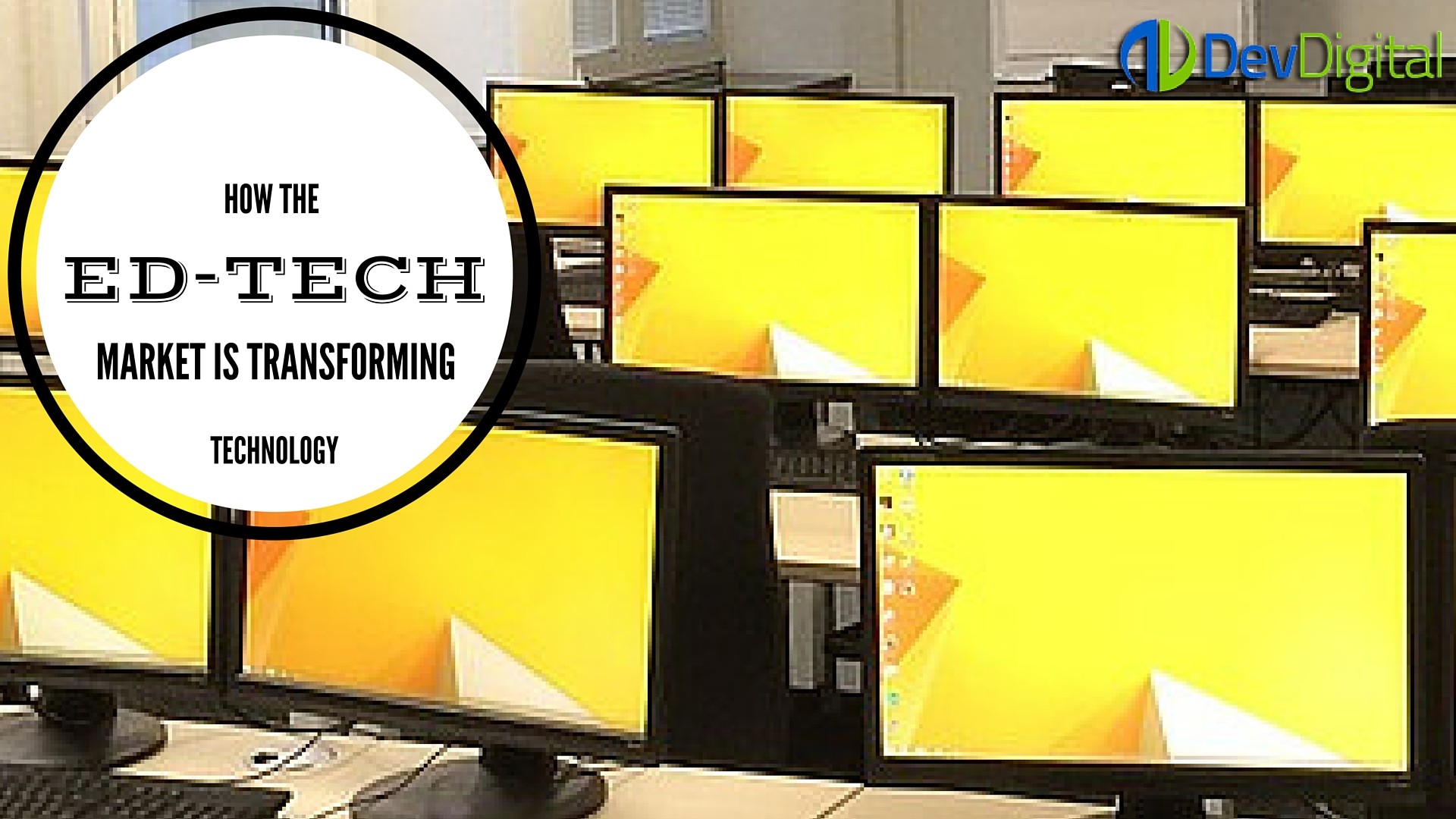Blog
How The Ed-Tech Market Is Transforming Technology
March 22, 2016
Posted by: Maggie Ashworth
A recent article in The Atlantic states that the ed-tech market is worth more than $8 billion, although “skeptics question whether the new products improve learning.”
While many people are still unconvinced that educational technology actually betters the learning process, the data and statistics hold the proof that this industry is transforming the learning methods most of us are accustomed to.
The Educational Technology Industry Network has divided ed-tech into four categories:
- Content: Such as an “interactive software that teaches language arts and math”
- Instructional Support: Encompassing “testing and productivity tools”
- Management: Such as “Learning Management Systems, and class-scheduling software”
- Special Categories: Which includes “Online Courses, as well as tools for niche areas like Advanced Placement materials or special needs”
The network examines the data reported by organizations that profit from selling ed-tech products and services to kindergarten through twelfth graders across the United States, and their 2012-2013 report included roughly 855 companies, which shows the growth of the ed-tech platform in recent years.
The Atlantic states that recent growth can partly be attributed to the expansion of the definition of online courses. While this phrase once referred to separate Massive Online Open Courses, it has now been amplified to incorporate basically all digital educational programs that can be integrated in schools, and standard learning mechanisms.
In 2014, ed-tech companies in the U.S. raised a total of $1.36 billion, a significant increase from $1.2 billion in 2013.
As schools have become widely more accepting and open to buying ed-tech programs, it has sparked the attention of investors, thus increasing investments into associated startups. Previously, schools called for in-depth RFPs before making any decisions, but these days ed-tech companies are allowed to provide direct demos of their products in schools for months at a time, granting them and their products much easier access in traditional classroom environments.
However, ed-tech access is not yet balanced amongst school systems, which is largely due to unbalanced internet access, as some students receive high-speed connections, and others are only allotted specific times to go online. Unfortunately this means that the schools with less internet connectivity will receive less attention from the ed-tech market, as they focus on environments that quickly and easily support their technologies.
The good news is that the U.S. Department of Education is including ed-tech costs in the general supplies and equipment budget.
As the ed-tech industry continues to rise, it offers the hope of providing widespread, easily accessible learning techniques, as well as the support of startup companies working to make a difference in the education sector.
With these recent developments, it’s a smart idea for businesses to consider adding ed-tech to their own offerings to enhance the value to their employees, customers, and the general marketplace. If you want to know how just ask DevDigital !!
